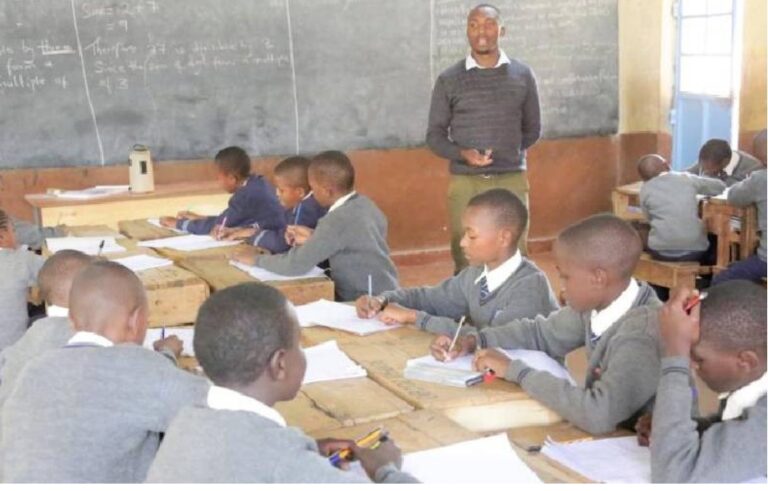The salaries of thousands of teachers are at risk of being delayed as the education sector grapples with a Ksh27 billion funding shortfall.
The financial crisis, which affects primary, junior secondary, and secondary schools, threatens to disrupt learning and further strain already overburdened institutions.
Appearing before the National Assembly Education Committee on Thursday, February 20, Principal Secretary for Basic Education Dr Belio Kipsang painted a grim picture of the education budget, warning that a glaring financial gap could cripple essential services.
For instance, the Free Day Secondary Education (FDSE) programme is short by Ksh21.85 billion, leaving nearly a million students without adequate funding.
The government had allocated Ksh54.886 billion for FDSE, yet the programme requires Ksh76.654 billion. Dr Kipsang told the committee that the capitation funds for 3,244,325 students stand at Ksh22,244 per learner, while 9,243 students with special needs are allocated Ksh50,772 each.
However, with the existing deficit, 982,197 students will miss out on these crucial funds, raising concerns over the ability of schools to meet operational costs, including teacher salaries and infrastructure maintenance.
Already, many secondary schools are struggling with inadequate facilities. Classrooms, libraries, and laboratories remain under-equipped, and the ongoing financial strain could force institutions to halt crucial projects or delay paying staff.
Teachers, who are already facing increased workloads due to understaffing, now risk late salaries, which could further demoralise the profession and impact learning outcomes.
Junior secondary schools have not been spared either. The sector requires Ksh46.1 billion but has only been allocated Ksh45.669 billion, creating a deficit of Ksh4 billion.
The introduction of the Competency-Based Curriculum (CBC) has further exacerbated financial pressures, requiring greater investment in teacher training, digital learning tools, and specialised facilities.
The funding gap also extends to primary schools, with an allocation of Ksh9.121 billion falling short of the Ksh9.781 billion required.
This shortfall puts at risk critical initiatives such as feeding programmes and the provision of free learning materials.
The budget constraints are expected to affect over 650,000 primary school students, potentially disrupting access to quality education at an early stage.
The Kenya National Examinations Council (KNEC) is also struggling to administer national exams such as the KCSE and KPSEA. With a funding requirement of Ksh3.57 billion, the council risks a deficit that could affect exam printing, security, and grading processes.
Any disruption to national assessments could have dire consequences for students preparing for their final exams.
The Low-Cost Boarding School Programme, which supports 411,000 learners, is also at risk. While provisions have been made for meals and staff salaries, current allocations only provide Ksh5 per learner per day.
Stakeholders have urged the government to increase this amount to at least Ksh11 per learner daily to ensure the programme’s sustainability.
School feeding programmes, particularly in marginalised areas, play a vital role in student retention and performance. A reduction in funding could lead to increased absenteeism and lower academic achievement.
Kipsang emphasised that additional resources are urgently needed to prevent further disruptions to learning and school operations.
Members of the Education Committee expressed concerns over the dire situation. Committee Chair Julius Melly warned that the failure to address these funding gaps could undermine the quality of education.
“This may, in the long run, affect education outcomes negatively, as schools will be unable to function effectively,” he cautioned.
Despite the grim outlook, Kipsang assured legislators that the Ministry of Education is working to address the challenges.
He reiterated the government’s commitment to constructing science laboratories in all senior secondary schools by 2026.
However, concerns remain over the immediate needs of students and teachers, who rely on timely payments and adequate facilities to facilitate learning.
